The Curious Music of Monsieur Desplat: Interview with Alexandre Desplat
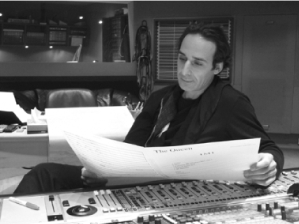
Alexandre Desplat is no more just a rising star in the current film music roster. Active since the late 80s for the French cinema, the composer has gained the focus and the attention of worldwide audience in 2004 with the beautiful score of The Girl With a Pearl Earring, which was nominated for a Golden Globe. Since then, Desplat has begun to be called with more and more frequency by American and British directors, whom wanted his own unique voice to score their films. The Jonathan Glazer-directed film Birth was another score which received lot of critical and fan acclaim for its own peculiar approach, as it was the score for the Bruce Willis' star-vehicle Hostage. In 2005, Desplat received his second Golden Globe nomination for his restrained score to Syriana and wrote an adrenaline-charged score for the Harrison Ford's actioner Firewall. The following year is the moment of major exposure and recognition: Desplat wins the Golden Globe for The Painted Veil, while the score of Stephen Frears' The Queen is nominated for the Academy Award. Despite a constant growing of American projects, Desplat continues to work quite regularly for French movies with directors like Florent Emilio Siri and Jacques Audiard, achieving an ideal balance which brings really the best of both worlds for his own career.
The Curious Case of Benjamin Button is a major project that puts Alexandre Desplat even higher among the current crop of film music talents. The rich and complex filmmaking style of director David Fincher finds an ideal companion in Desplat's delicate and sophisticated approach to film scoring. The movie offers to the composer a great canvas on which he paints a very transparent and refined score, a moving and subtle background where the complex and deep emotions of the story can find their own beautiful musical counterpart. The undoubted talent of the composer to write very simple yet soulful themes and motifs is counterbalanced by his own perfect skills for transparent orchestrations and very detailed textures. The Academy Award-nominated score for Benjamin Button is probably the best and most refined example of the abilites Desplat showed in his own film scores so far, as well as a very big demonstration of how much film music can still be melodic and musical in contemporary movies.
On the eve of the Academy Awards ceremony, Colonne Sonore meets Alexandre Desplat for an exclusive conversation in which the composer talks about his work on this film, his collaboration with director David Fincher and his own unique approach to the art of film scoring.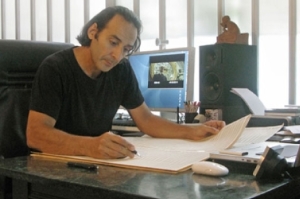 Alexandre, first of all, congratulations for your Academy Award nomination for The Curious Case of Benjamin Button. To be nominated for an Oscar is always a dream come true for everyone working in the film industry.
Alexandre, first of all, congratulations for your Academy Award nomination for The Curious Case of Benjamin Button. To be nominated for an Oscar is always a dream come true for everyone working in the film industry.
Thank you. It's a great honour to be there once more, amidst the famous Hollywood composers. I'm just a newcomer here and I've been knocking at the door all these years, you know. I'm really happy to be honoured a second time. American cinema is not only full of talents, but it's also [about] movies that we dreamed and seen so many times, from the silent movies to Howard Hawks, Coppola and Scorsese and Mike Nichols—all these directors of the last 30 years who influenced my love for movies, they all have been there. I remember my first time I was at the Golden Globes, I was sitting next to Al Pacino on the left, Jack Nicholson on the right and then Meryl Streep, Diane Keaton, Steven Spielberg, they were all there. If you like movies, American movies in particular, you're in the nest. It's fabulous.
How does it feel for you to be recognized from your peers?
That's even better, because of course it's important for me as a composer to be always respectful and also be respected by my fellow musicians. I like my work to be respected and liked. You know, I throw it in the air and if it lands somewhere, it's good. It's sad if your scores are not, well, heard. It's good to be noticed and honoured.
How were you involved in The Curious Case of Benjamin Button? Were you approached directly by director David Fincher?
Yes. David knew my work from previous movies The Painted Veil, The Queen and especially Birth. He had kind of decided that my style of music was appropriate for this character, which is very restrained and silent. He wanted the score not to be overwhelming or too loud, actually not too much [like a] classical Hollywood score. He wanted it to be more edgy and I think that's why he thought I could be the right person to do it.
Fincher always showed a great level of detail and attention to the music of his films, and it always plays a very important role.
Yes, very, very detailed. He likes music and he knows the impact that music can have on a story. He pays attention to all single aspects of the creative process, but he gives lots of thought to the music. I was surprised because he's very accurate, very precise, not that he speaks musical language, but he speaks very cinematic language, which is something I love and I like to understand, so he was very much involved from the start. He and his sound designer Ren Klyce had put together a temp track from my own music since the beginning.
Is he a very demanding director?
Yes, as he should be. I'm also very demanding with the musicians and sound engineers during the recording process, so I understand when you have such a big movie in your hands, you want everything to be perfect. It makes sense to me. So I'm not surprised about that and I would not have expected anything different from him. He has to be demanding, he has to be detailed and obsessed by perfection. That's something we're equal, on that level.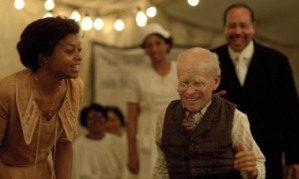 The score is very detailed and rich, there are a lot of things happening, but you were very careful to mantain a very quiet and delicate tone throughout. There's a very controlled, beautiful balance of all the elements: thematic development, textures, orchestrations. How difficult it was to find the right balance for a complex film like this?
The score is very detailed and rich, there are a lot of things happening, but you were very careful to mantain a very quiet and delicate tone throughout. There's a very controlled, beautiful balance of all the elements: thematic development, textures, orchestrations. How difficult it was to find the right balance for a complex film like this?
As you said, it is a complex film. The first thing we decided was to avoid “nailing” the same colors and the same theme again and again in the head of people. We didn't want to have a one-melody movie, you know, one that just goes on and on in your head forever. We didn't want to go there. We wanted the movie to be a puzzle of emotions, because it's a puzzle of characters and situations, so we created a lot of themes that would be associated whether by characters or situations—for example the Mournmansk love story between Tilda Swinton and Brad Pitt, that's a situation theme. It's there and then it's gone when the episode is over. Same for the war [episode], there's a kind of music when they're in war and when it's finished we don't hear these themes again. There's also the episode of the lake Pontchartrain, it has a color and it's related to this place. Otherwise, it's mostly themes by characters.
This delicate balance got to the point where there are maybe just two harps and a cello playing in some cues, but even so few instruments carry a lot of dramatic weight and become much louder than a 100-piece symphony orchestra.
Of course, because the precision of it makes it very remarkable to the ear, to the people who are listening. When I arrived in America, I remember I was asked many times about the difference between Europe and America, and I would say in Europe you can do a score with a quartet or a chamber music group or a little ensemble. It's not a shame. While in America you may not, because there's no orchestra, because it would sound cheap. But I think, as you just said, I've managed in last years to prove that you could have just a few instruments and still be very effective. Not all the time of course, but, you know, at times. I'm not the first to do that—the solo piano in Chinatown, or, well, there are plenty of examples of the solo instrument or a few instruments that work very well. It's just a matter of not overwhelming the soundtrack all the time and keeping it moving, so that the size can go from very little to very big. And the orchestra of Benjamin Button is big – 80 pieces or so – and it just allows me to go big and lush and wide in terms of sound and still be precise.
Do you think you had to subtract more than add, like peeling away layer after layer, to arrive to the true core of the film?
Of course, that's actually exactly what David wanted, that the movie had to be the subtext and the unspoken more than the obvious of what we see. So we always tried to bring out emotions that you don't really see on screen.
One of the things that struck me the most was the melodic/thematic personality of the score. You seem really not afraid in using clear melodies and identifiable themes in your film scores. This is now something very unusual and almost revolutionary in film music. A lot of film scores are now dominated by an almost sound design-like approach.
Yes, I think my scores are very unashamedly melodic. I think it's something I can say I'm really proud of. I like that my scores are very melodic. I have proved in the past that I can write scores that are less melodic, because maybe the picture is calling for a more atmospheric sound. In this movie, because of all the characters, I needed to give threads to the audience. Being melodic is difficult. I work a lot on these melodies, some of them come easily. But to develop them, to make them good enough so that they can stand above the movie, it's a lot of brainstorm.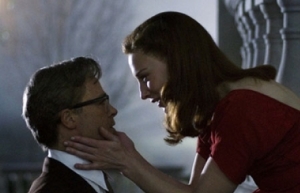 Is it harder now to be musical and melodic for the film composer than it was in the past?
Is it harder now to be musical and melodic for the film composer than it was in the past?
I would say it in another way. When the synthesizers and the electronic arrived, the door of film music were opened to musicians that were not trained, but also to musicians that had no capacity of writing melodies. I think they were sick, in a way, of being hit in the head all the time by melody in movies. There was a new bunch of directors that also got tired of that and they wanted to hear something different. So, the good thing is—yes, it opened another way of composing music for films. But I think if you work hard, you can really balance both. You can manage to have atmospheric score, like the music I written for the moment when they discover all the corpses in the water, during the war period section of the movie—the music is very atmospheric, there's no melody there, but a few minutes later you will hear a strong melody. So I think film music can have both. Sometimes melody is just a little hook. Bernard Herrmann proved that melodies can be very few notes, as did [Ennio] Morricone. If you use notes properly, you can still have a kind of melody that will hang in your brain.
Your music is always “moving”, there's an inner sense of constant motion and flow throughout all the score. You seem to like a lot this kind of fluid style of writing, which we can find also in scores like The Queen, The Painted Veil and Girl with a Pearl Earring. Do you think this is a particular sign of your own style?
I think it is. If you analyze my music, it is also influenced by another current of the 70s and 80s, which is minimalism—like John Adams or Steve Reich, composers I really enjoy and like a lot. But I never wanted to be [stuck] in a dogma, could it be minimalism or serialism. I just use my knowledge—well, my love of this music, it's better to say that way, and I think it really has a great impact on a soundtrack, because also, to come back to what we said, I love so much to write melodies. It allows me to have melody and still have a little motion, like an engine that render the melody. I was mentioning Morricone before and I remember I did a concert once with Ennio Morricone, Jean-Claude Petit and Randy Newman. I was the first composer to go on stage, with all these very distinguished composers watching me and it was very very difficult to do. At the end of the concert, Morricone said to me “Bravo, ma non usare troppo ostinato!” [“Bravo, but don't use too much ostinato!”]. Then I went back to his music the next day and I thought “Is he joking or what? He does it all the time! (laughs) And his music is still fine!” (laughs). You know, he's always using ostinato, those little driving motifs in the background and a strong melody on the top.
You also have a very detailed style of writing. There are a lot of things happening in your music, lots of tiny and close details, but you always keep your music very transparent. It's like simple and complex at the same time. Again, do you think you prefer to work on kind of movies that allow to express this particular style of yours?
Yes. I like refined orchestrations. I love the orchestra. I love the instruments, all of them. I like to play with them. I like to think and dream of them, how can I mix them, which instrument can I use here or there, in an orchestral blend. It's very, very playful to orchestrate. I take a lot of pleasure there. When I start writing for a movie I think: which blend of colors, which instruments will be able to work, will be able to match what we see and what we hear in the film? My music is very simple, very clear, very transparent and very difficult to play. You hear everything, there are many solos. Almost every section or every soloist can have its moment in my scores, it could be flute or trumpet or everything. In Benjamin Button this is crucial, there are a lot of solos and they're very important. So you must have the best musicians to play this music, they have to be really perfectly pitched and focused.
How much time you spend in rehearsing the music before recording?
I don't rehearse. The musicians sight-read everything. We work together, but there's no rehearsal. I'm rather quick in recording, even though I like detail.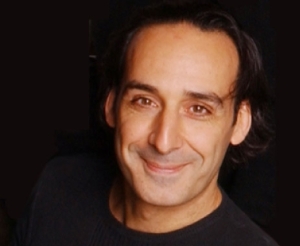 You maintained a very fruitful collaboration with the London Symphony Orchestra, which performed several of your film scores. Benjamin Button was recorded instead in Los Angeles. Which are the main differences between the European musicians and the American ones? Do you think there's a definite difference in terms of sound and approach?
You maintained a very fruitful collaboration with the London Symphony Orchestra, which performed several of your film scores. Benjamin Button was recorded instead in Los Angeles. Which are the main differences between the European musicians and the American ones? Do you think there's a definite difference in terms of sound and approach?
There's a difference of sound, definitely. For example, I would say in France and in England the strings have a deeper sound together. The string sound in America is a bit more tiny. The players are equally fabulous in these three countries. I recorded in Germany years ago, with a studio orchestra and there are wonderful musicians too. I never recorded in Italy, so I can't speak for your country. But definitely the recording scene for me is Paris, London and Los Angeles. There's a sound in Europe which is my own favourite, but the musicians in America are fabulous. The difference between the LSO and the rest of the world is that the LSO is a proper symphony orchestra, the same group is playing every day. They record a lot, but they also play Boulez and Bartòk and Shostakovich. In a week they can do so much different music that it's easy for you, when you're conducting at the podium, to convince them and say “Please, shift to that direction, give me more or less vibrato, more of this or that”. It's this cohesion of LSO that it's just magico.
How much important is the conducting job in your work?
It's one of the most rewarding aspects because it's a real moment of pleasure for me. Composing is a very painful thing, I mean, boring. You're alone in your studio for 18 hours a day, sometimes more, and there are moments of joy. I work in a trance-like state. That's the way I compose and that's why I work a lot. I don't want to stop and I like trance, it's my drug—I never took drugs, they have never been my taste, but being in trance with music always put me high and I like being in that state. It's a lot of hard, difficult, long, tedious work. I love being up on the podium, even though it's a very demanding job—you have to be very precise, there's a great deal of concentration—but for the first time you're hearing the music that you were dreaming of. For the first time you can react and appreciate, good or bad, what you have done, what you have written. It's also the first time where you're not just on your own. There are 20, 30, 40, 80 or 100 players in front of you that you can share the moment with. That's a great pleasure. I would be very frustrated to stay in the control booth. I really like to be on the front and give all my indications and my requests to the orchestra.
You have now a very successful career on both sides of the Atlantic. According to your experiences, what are the main differences between the European film industry and the Hollywood film industry, in terms of the musical approach to the films? Do you think there are definite aesthethical differences between the two industries?
Yes, there are, because the history of cinema is different, our cultures are different. I don't think America would have given a Visconti or a Truffaut, both being coming from literature and fed with all the arts of Europe. Very different background. The filmmakers are all different, but the composer has always the same exchange with the director. It's always: how can I improve the movie with music? Or how can I destroy it? What's my job here, what can I do to help? What is interesting? What is wrong if I go in that direction or this direction? Working with American directors or French directors or English directors actually is the same. It's an exchange between two creators who know the crafts of their own and meet to put these crafts together and make them merge. At the end, I'm working for the director, he's the one I need to fulfill with my score. Otherwise, I would write for the concert hall.
You have always expressed a deep admiration and reverence toward the classic Hollywood film composers, like Waxman, Rozsa, Herrmann and also to more contemporary ones like John Williams and Jerry Goldsmith. Are these composers a kind of models of expression for you?
You forget there's not one interview I did where I don't mention Nino Rota in my top list. He's one of the first composers I really listened to on vinyl. Funnily enough, I never had many records of Morricone, maybe because I saw the movies and heard his music so much—I had The Mission and a couple of other things. But I would buy everything of Rota, all of the music I could find. And I listened to it again and again, because there's this mix of simplicity and still complex approach, very classically trained, a very smart use of studio recording and a fantastic poetic inspiration.
Do you feel like the natural heir of great French film composers that reached an international success, like Maurice Jarre and Georges Delerue?
Oh yes, I definitely am, of course, because they showed us the way to Hollywood movies. Maurice Jarre, Michel Legrand and Georges Delerue were the big three. I liked also Francis Lai's music, but I was more attracted to them because of my education. There's also this strange way, like every ten or fifteen years there's a French guy that's coming in—Maurice Jarre was there in the 60s, then Delerue came in the 70s, then Jarre came back in the 80s, then in the late 90s Gabriel Yared won the Oscar for The English Patient. Well, I am not there officially, but I can say it will come (laughs).
What are your current projects?
I've just finished Cheri, the new Stephen Frears film. I also just did a film called Julie & Julia with Nora Ephron. And then there's the new Terrence Malick film, which I will work on in the next months.
Interesting. I hope this will go well, I know Malick is a very demanding director.
We shall see, you never know. Yes, he's very demanding and very music-savvy.
Do you have a dream project/film score you deeply want to do one day?
Yes. Because I like my American career and it's taking quite a good shape, but it's starting to be sorely anchored, as much as a career can be of course, and I'm being careful. I would love to do more European movies. I made one Spanish movie once, I never made German movies. I'd love to explore these tracks. I'd love to do Japanese movies, because I love Japanese cinema. I'd love to do again a Chinese movie. I'm a very multicultural person and I'm excited just talking about it. I'm excited about making movies with foreign directors, could it be Greek or Italian. I would love that.
Is there a particular director you'd love to work with?
Oh, there are so many! One dream would be to work with masters that I've admired. Stephen Frears was one of the masters I've admired and I've just finished my second film with him. To me it was incredible, as it was with Philippe De Broca and Francis Giraud. I would love to do a movie with Francis Ford Coppola, because I've always loved his movies and most of the music he had for his film were masterpieces. I must say I'd love to come back with Fincher. I think Benjamin Button is maybe the movie which is the closest to my dreams of doing a Fellini movie one day. I think it's very close to that world, very imaginative and poetic, moving and very human.
It's a film that looks incredibly gorgeous, it doesn't seem just like the regular Hollywood film.
It's also a movie that doesn't think that the audience is stupid. It doesn't play neither the trend to be trendy, or goes to a quick editing just because it's better. It takes a style, an aesthethic and it sticks to it. There are no compromises.
What is film music for you?
Film music is the way I found to express myself in art. I think music is an art and I also think that cinema is an art. As much as it is possible. Not all the movies can touch that Grail, but I think each time a movie can approach it, I'm happy to be near that.
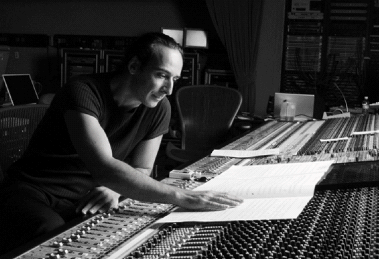
Colonne Sonore wishes to thank Alex Melelian (Chasen & Co.) for the help and support in setting up the interview and Alexandre Desplat for his courtesy and kindness.
© ColonneSonore.net/Ottava Arte, 2009